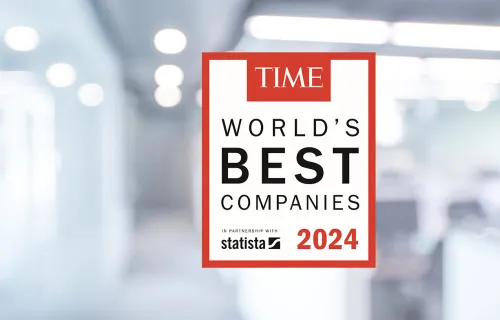Author: Ranjit Rajagopalan
Harnessing big data is already a necessity for most companies. Those unable to do so effectively are at a competitive disadvantage. Most companies that we see as success stories, especially in the tech field, have used big data to their advantage by either creating innovative product offerings or optimising their operations.
The ability to harness big data is the least common multiple in this era, which, coupled with thought leadership, innovation and a clear vision, will result in success for companies of the future.
From my perspective the most exciting big data analyses are those that assist organisations to understand their customers better and come up with offerings that benefit their clients and improve their business. These initiatives have numerous names such as ‘Customer 360’, ‘Hyper-Personalisation’, and ‘Customer Success’, but all strive for the same goal: to help the client get to know their customer better.
The keys to improving big data usage and analysis
Big data perfection is a mirage: the closer we get to our goal, the higher the bar will be set. But there are many ways that we can seriously improve upon our current usage and analysis of data.
A commonly used allegory in the industry is the analytics maturity curve. I still feel that most of us are yet to master the descriptive analytics aspect – we need to understand each of our customers at a microsegment level and then move onto the holy grail of individual product offerings.
It sounds like a cliché, but organisations need to harness technology to gather a diverse variety of data sources that have previously been overlooked. By processing larger volumes of data at a higher velocity using the latest analysis techniques, our big data efforts will improve.
Technology is a very important enabler to meet this goal. There is a proliferation of technologies out there that will do the job, but the most important precursor to success is the vision to stick the course, to hire skilled and passionate team members, and to empower them to succeed.
However, this is easier said than done, and I have seen numerous promising initiatives that have run out of steam due to one roadblock or another.
So, how can non-data driven companies build their capabilities?
The short and often quoted answer to this question is people + process + technology = success. There are three key ways to add data to this equation:
- Build a data-driven team: Hire people who have strong data skills: strategic leaders, product innovators, data scientists, architects, technologists and engineers.
- Fix your data: Replace data silos with a single source of truth – ideally a unified data warehouse, but if that’s not possible, a well-defined guideline of which data repository should be used to drive which decisions.
- Leverage data-driven technology: It is vitally important to choose technology that is complementary to the organisation (i.e. that leverages existing investments on tech and skills), but that also meets the needs of the future. The evolution of cloud-enabled data technologies is a great democratiser and should be used to maximise advantage.
How CGI is innovating in big data
CGI is unique, as it not only has a global team of technology experts, but also has an emphasis on developing world-class IP and products.
In Australia, we have also built upon our rich supervisory control and data acquisition (SCADA) heritage and created a new smart city offering by combining CGI’s data science capability, various cloud technologies and a variety of new IoT sensors and protocols.
I was lucky enough to play a lead role on this innovation project. The opportunity to innovate was identified and I submitted the solution as part of our ICE (Innovate, Collaborate, Evolve) Program. The solution was approved and received funding and cross company collaboration to get it off the ground. We are currently working with our teams in the UK to present the solution to clients across the Utilities sector.
This is just one example among many that have embedded big data processing technologies to deliver our clients more value.
The field of data is continually evolving, and while CGI does offer big data expertise, we also learn a lot from each engagement with our equally brilliant clients – knowledge that is then cross-pollinated to benefit our clients and internal team members.
Placing itself on the leading edge of innovation, CGI is a dynamic place to work as a data professional. If you’re interested in the increasingly important role played by data into the future, there’s no better place than CGI to not just witness, but directly affect this evolution.
Interested in getting involved? Check out CGI’s latest career opportunities.




